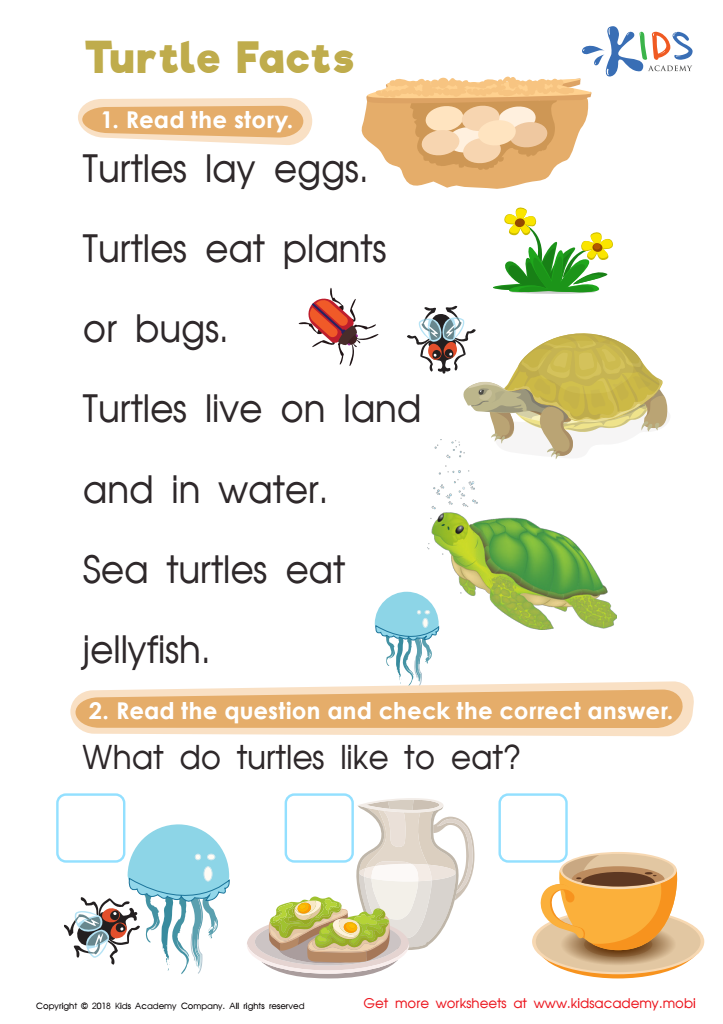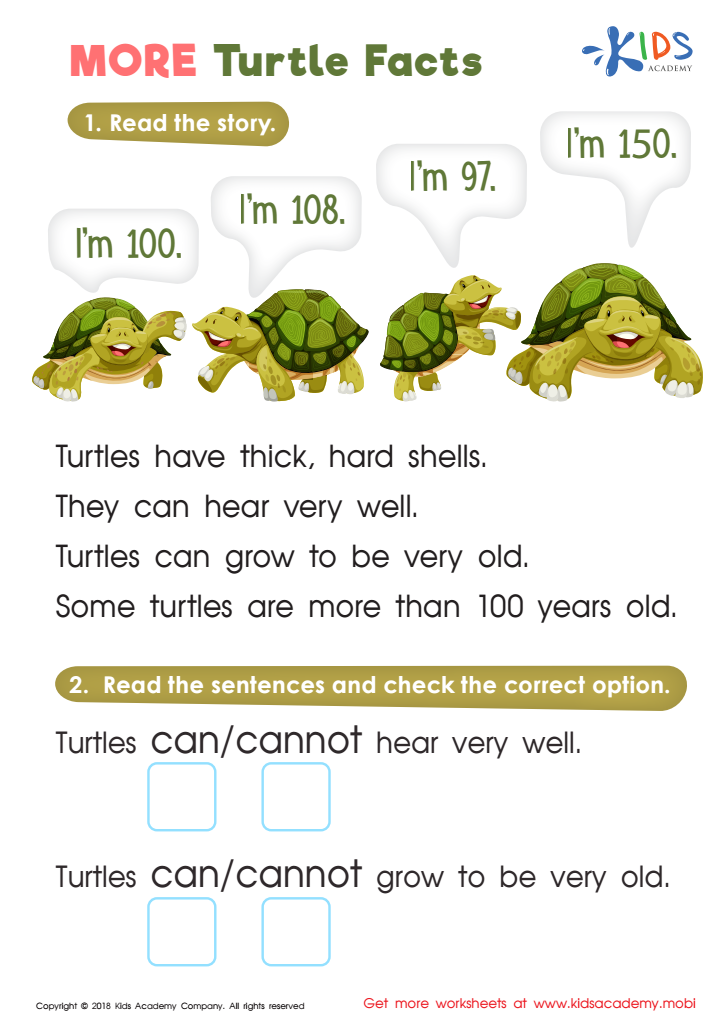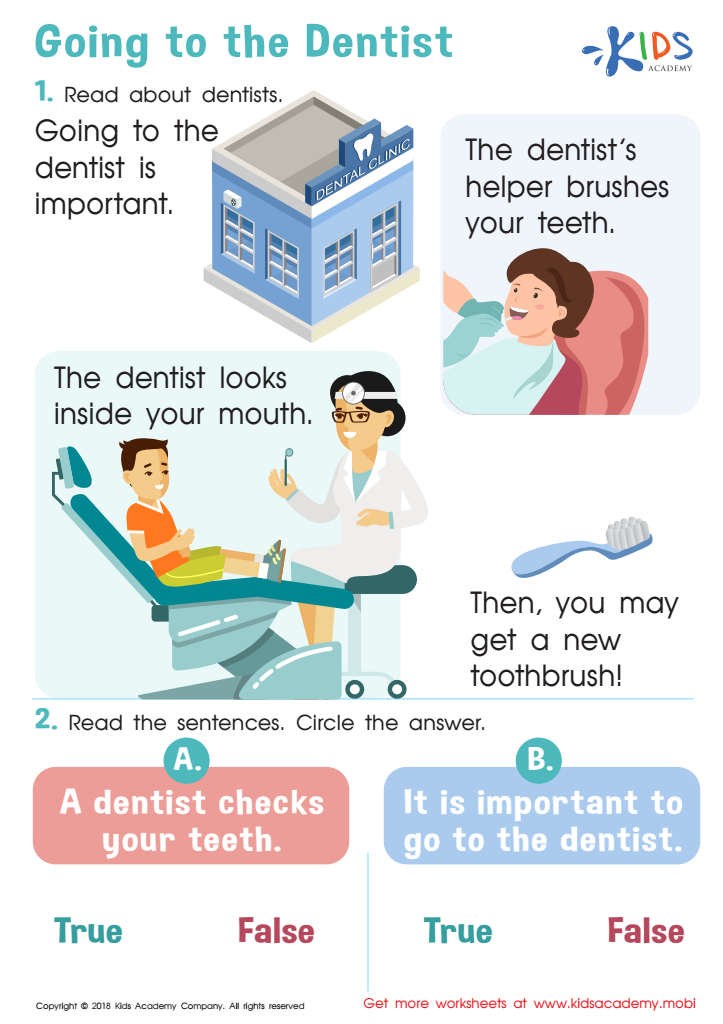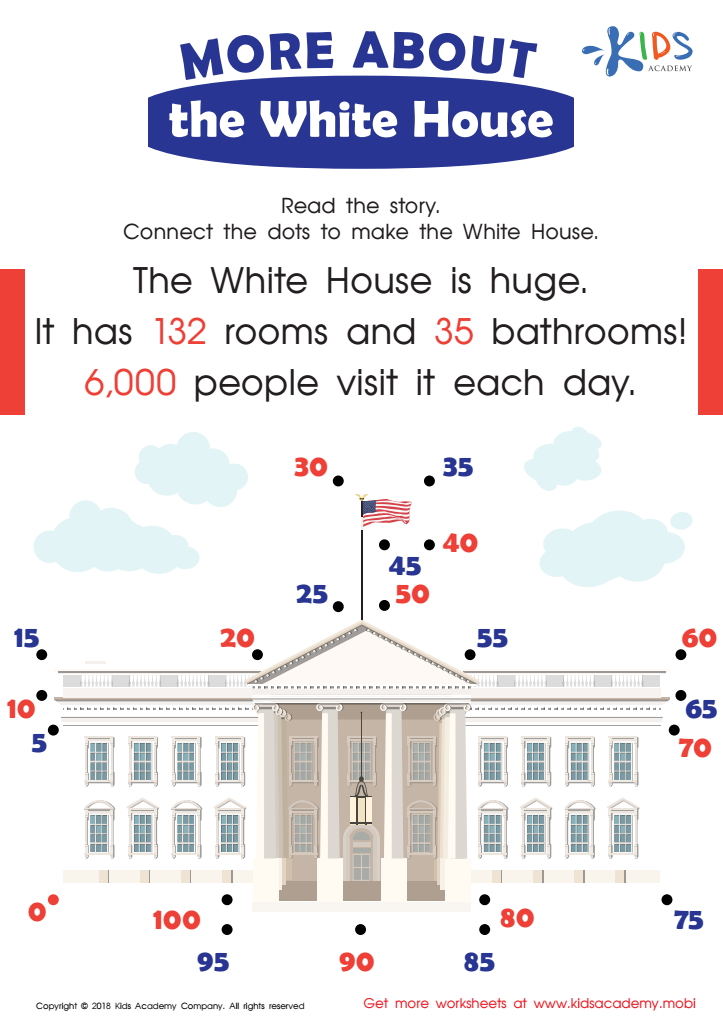Reading comprehension Easy Reading Non-Fiction Worksheets for Ages 4-6
4 filtered results
-
From - To
Discover our collection of "Reading Comprehension Easy Reading Non-Fiction Worksheets" designed specifically for ages 4-6! These engaging and interactive worksheets help young learners enhance their reading skills while exploring fascinating non-fiction topics. Perfect for early education, they encourage children to practice comprehension through fun visuals and simple texts. Each worksheet includes questions and activities that promote critical thinking and understanding of the material, fostering a love for reading. Ideal for both homeschooling and classroom settings, our resources make learning enjoyable. Start nurturing your child's literacy skills today with our captivating non-fiction worksheets! Explore now and make reading comprehension fun!


Turtle Facts Worksheet


More Turtle Facts Worksheet


Going to the Dentist Part 2 Worksheet


More About the White House Worksheet
Reading comprehension is a fundamental skill that underpins a child's academic success and lifelong learning. For children aged 4-6, engaging with easy reading non-fiction is particularly valuable. At this stage, children are naturally curious about the world around them, and non-fiction texts allow them to explore and understand topics ranging from animals to space and everyday life.
Parents and teachers should prioritize reading comprehension in this age group because it fosters critical thinking and encourages questions, enhancing cognitive development. Non-fiction texts often present factual information, which helps young readers distinguish between reality and fiction, building their knowledge base and their ability to comprehend various subjects.
Moreover, reading these materials boosts vocabulary and language skills, laying the groundwork for effective communication. When parents and teachers encourage discussions about what young learners read, it further enhances comprehension, allowing children to express their thoughts and connect ideas.
Finally, instilling a love for reading and understanding diverse topics at an early age sets a positive foundation for reading proficiency in later years. This ultimately empowers children, making them more confident and inquisitive learners, ready to engage with complex ideas and texts as they grow.
 Assign to My Students
Assign to My Students














